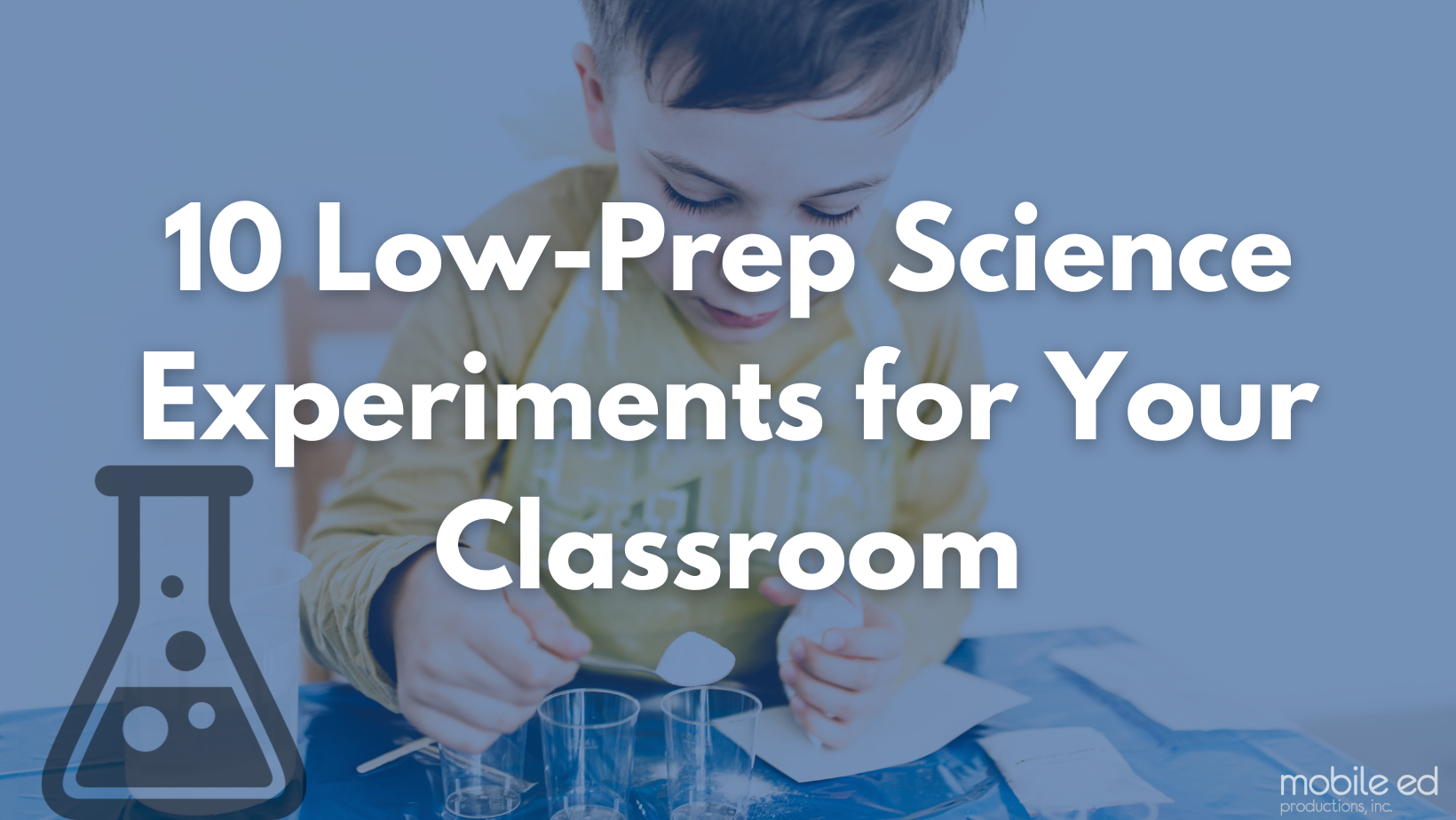
Science can be challenging to learn, but it doesn't have to be complicated to teach. Even the most simple classroom objects can have the biggest impact on student learning. Finding ways to meet students where they're at and harnessing their sense of wonder is the easiest route toward effective learning. Mobile Ed has ten low-prep science experiments that are both educational and exciting for students.
Sometimes a demonstration is the most compelling way to explain an important concept. Not only does it get our point across a little easier, but students become fascinated by the demonstration and are more willing to stay engaged.
Even better than a demonstration is a hands-on assignment that gets students involved, asking questions, and participating in their education. Mobile Ed uses hands-on learning in many of our programs, and we consistently see great results among students. They are more engaged in the lesson when lessons are hands-on, helping them to stay focused and retain more information. Hands-on learning, also known as kinesthetic learning, requires students to use their sense of touch to learn and make connections. All it takes is a few classroom materials and some curiosity, and your students will become scientists in just a few minutes.
Here are ten low-preparation science experiments to do in your classroom that students will love (and learn from)!
-
-
-
- Lego Earth Layers Model. Learn about geology while connecting different colored Lego pieces. This tactile project keeps students engaged while also providing a hands-on visual of each layer of the earth.
-
-
-
-
-
- Instant Snow. Winter is approaching fast! Bring some "snow" into your classroom and learn how it forms by completing this simple (and fun!) chemistry project.
- Instant Snow. Winter is approaching fast! Bring some "snow" into your classroom and learn how it forms by completing this simple (and fun!) chemistry project.
-
-
-
-
-
- Water Cycle in a Bag. This is one of Mobile Ed's favorite experiments to do with students. Grab a plastic bag, water, and some food coloring, and your students will get a hand-held demonstration of the water cycle.
-
-
-
-
-
- Storm in a Glass. Learn the basics of weather science with a clear cup and a few household items. Students will be mesmerized as they see a 3-D model of what happens in the sky during rainfall.
-
-
-
-
-
- Elephant Toothpaste. This is a classic chemistry experiment that students can't help but love. Just don't be afraid to make a little mess!
-
-
-
-
-
- Build-Your-Own Sundial. With the materials already in your classroom, students can make their own time-telling device and learn about the earth's rotation.
-
-
-
-
-
- DIY Bubbles. Why not take something everyone loves and turn it into a science project? This chemistry project uses water and dish soap to make something so simple and so fun: bubbles!
-
-
-
-
-
- Atom Models. Chemistry may be challenging and hard to visualize, but this hands-on model makes learning about atoms simple and delicious!
-
-
-
-
-
- Straw Roller Coaster. A fun and simple engineering project that students of all ages can do. Grab your plastic straws and some glue and transform your students into engineers!
-
-
-
-
-
- Magnetic Race Car. Magnetism at its "funnest"! Using a few magnets and some wheels, your students can learn about magnetism while encouraging some healthy competition in the classroom!
-
-
All of these experiments are great ways to make STEAM principles come alive, but the Mobile Ed STEAM Museum is another exciting way to teach students about the fun applications of science. This hands-on museum includes state-of-the-art technology and interactive activities related to Science, Technology, Engineering, Arts, and Math.
Some subjects covered in the STEAM Museum are:
-
-
- Technology
- 3D printing
- Problem-solving
- Robotics
- Coding
- Invention
- And more!
-
For more information on Mobile Ed’s science programs, visit our website.







